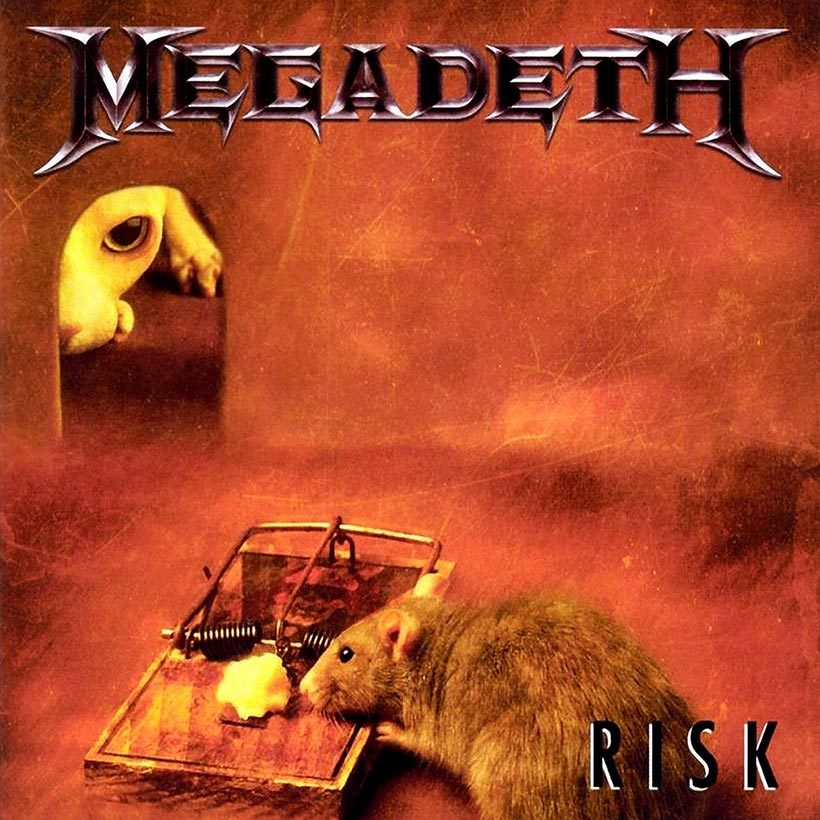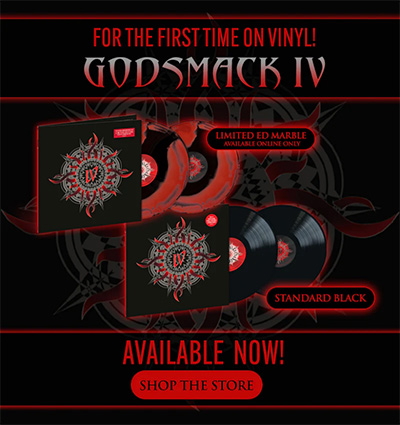‘Risk’: How Megadeth Took A Chance On Their Most Surprising Reinvention
Boasting all the elements of a hit album, ‘Risk’ delivered everything Megadeth promised in the 90s. But should it have been a solo Dave Mustaine project?

Seven albums and 16 years into their career, and Risk proved to be as much of a gamble in its nature as it was in name. Megadeth spent the 90s edging further and further away from their thrash metal roots, and since their breakthrough album, Countdown To Extinction, in 1992, Dave Mustaine and co had been in continual pursuit of radio-rock greatness. Risk was the next step in that quest.
Listen to Megadeth’s Risk now.
Released on August 31, 1999, it should have come as no surprise to long-standing fans that Megadeth’s eighth album, Risk, is not thrash metal. In fact, it’s barely a metal album at all. But perhaps what divided fans most at the time was not what was missing from the album, but rather the elements that were thrown into the mix. With the benefit of time and hindsight, however, Risk can be seen through a more balanced lens.
Taking more chances
At the suggestion of Metallica’s Lars Ulrich, Megadeth seized an opportunity to take more chances with their songwriting. It was an approach that worked for Mustaine’s previous band and, spurred on by their insane success, it’s only natural that he might have had an “anything they can do…” mindset. Guitarist Marty Friedman, too, had long craved the challenge of writing more “pop”-leaning songs. Besides, heavy music had changed beyond recognition since Megadeth’s inception, and to stay relevant surely it was better to evolve than stagnate.
For Risk, Megadeth retained the production services of Dann Huff, who worked on 1997’s Cryptic Writings. In addition, several of the album’s writing credits are shared between Mustaine and Bob Prager, a music-industry veteran who at the time served as Megadeth’s manager. However, his input is limited to lyrical contributions, with all music composed by Mustaine either alone or in collaboration with Friedman. As such, Risk is identifiable as a Megadeth album. But there are some interesting twists.
The opening track “Insomnia” has a more synthesized feel than Megadeth usually dole out, with a buzzing guitar sound better associated with Marilyn Manson. But an industrialized sound was very of-the-time due to the popularity of Manson and the likes of Nine Inch Nails and Rob Zombie. The dark and foreboding “Prince Of Darkness” and “Time: The End” have a typically menacing Megadeth feel, while “Crush ’Em” is a melodic metal anthem with an arena-sized chorus that’s as catchy as it is life-affirming. “Breadline” and “I’ll Be There” take a step closer to radio rock yet remain recognizable as Megadeth, largely due to Mustaine’s distinctive snarl.
The real risks lie in the presence of a Theramin (“Breadline’”) and other sound effects and samples (“The Doctor Is Calling”), and the layers of acoustic guitars (“Ecstasy”), orchestration (“Time: The Beginning”) and steel guitar (“Wanderlust”) used to beef up the arrangements. In fact, it’s the latter track that’s perhaps the most surprising for veering so far into country music territory.
‘I should have called it a solo record’
The burning question is: was this all a leap too far? Mustaine himself has expressed that it might have been better to release Risk under his own name instead of as a Megadeth album. He told uDiscover Music in 2017, “If that record would have been called The Dave Mustaine Project, people would have loved it. But because it said Megadeth, they expected Megadeth. And that was my mistake; I should have called it a solo record. But I had the band guys on there, which would have been totally disrespectful to do that.”
It’s true that Megadeth is a name that points to a particular style of music that is unforgiving when it comes to stylistic shifts. But, ultimately, Risk delivers everything Mustaine had promised throughout the 90s. It’s the mainstream metal album he’d been striving for all decade long, brimming with catchy hooks and infectious melodies while retaining something distinctively Megadeth. It has all the elements of a hit metal album, but was perhaps held back by the burden of the band’s name and the expectations that came with it.












